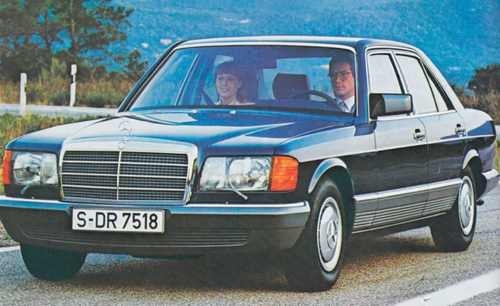
Mercedes May Abandon U.S. Entry-Level Market In Trump Era
As President Trump’s long-anticipated reciprocal tariff deadline approaches tomorrow, early signals suggest that the global trading system may soon undergo disruptions and structural shifts. These changes eventually set the path for the administration’s 'America First’ trade agenda to flourish and raise barriers for foreign automakers seeking to access the U.S. market. In turn, domestic automakers like Ford Motor Company, General Motors, and Tesla will have massive competitive advantages.
One of the first major changes is that Mercedes-Benz Group AG will potentially stop flooding the U.S. with cheap entry-level cars after spending the last three decades shifting down-market to attract younger and broader demographics.

The car company once catered to executives, professionals, and the affluent, but that all changed in the late 1990s with the introduction of the …
-
1997: Mercedes-Benz C-Class (W202)
-
2001: Mercedes-Benz C230 Kompressor Coupe
-
2013: CLA-Class (Front-Wheel Drive)
-
2020s: A-Class Sedan and GLA Crossover
Bloomberg first reported Tuesday that Mercedes has been mulling over discontinuing the small GLA sport utility vehicle because tariffs would make sales economically unfeasible. The report was based on multiple sources.
Here’s more from the report:
The German automaker is mulling cutting sales of more entry-level models like the small GLA sport utility vehicle as part of broader tariff contingency plans, the people said, declining to be identified because the deliberations are private. Trump’s 25% duties are scheduled to take effect this week.
Mercedes hasn’t made a final decision and may still shift course depending on how the levies are implemented, the people said. A lack of clear guidance from Washington is leaving executives frustrated and unsure how to respond, they said.
In the 1980s and 1990s, Mercedes was widely regarded as an executive status symbol.

But by the late ’90s, the brand diluted its image with a push toward „affordable luxury.”

If BBG’s report is correct, other German automakers could follow Mercedes and focus on ultra-luxury models in the U.S. market. This only suggests domestic brands may gain a larger share of the entry-level segment, thanks to their competitive manufacturing advantage in America.
Tyler Durden
Tue, 04/01/2025 – 14:25













